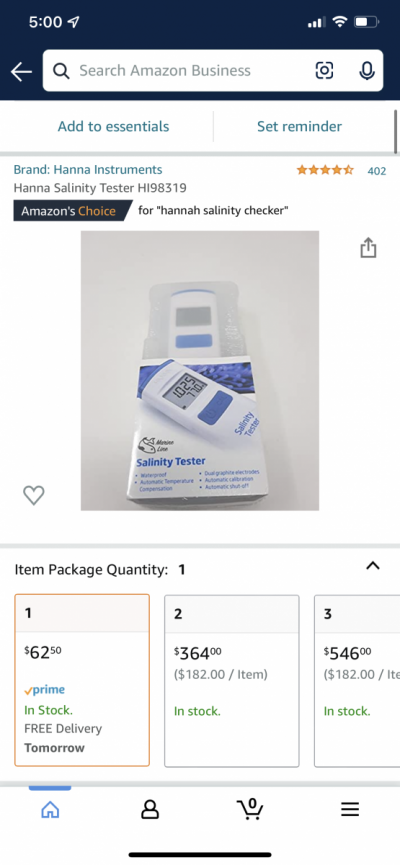@Randy Holmes-Farley
You introduced me to conductivity!
I first used hydrometers. I thought refractometers were too complicated. My salinity would be soooo off because I never calibrated the hydrometers. When using the hydrometers back to back would give wildly different results.
Then I used refractometers. They were definitely a step up, but they those blue lines were impossible to tell the difference between 1.025 and 1.026. Sometimes it would be within 3 different numbers!
As of yesterday, I have a conductivity tester by Hannah. It’s literally chef’s kiss. You dip it and it gives a digital readout. No more guesswork and it’s easy to calibrate!
With refractometers, I would need to get the PERFECT lighting and constantly focus the knob. It was a lot of unnecessary work especially because I have 6 tanks (1 DT, 5 QT’s).
Im really happy with conductivity and I wish I purchased it first. It’s easier than a hydrometer!
You introduced me to conductivity!
I first used hydrometers. I thought refractometers were too complicated. My salinity would be soooo off because I never calibrated the hydrometers. When using the hydrometers back to back would give wildly different results.
Then I used refractometers. They were definitely a step up, but they those blue lines were impossible to tell the difference between 1.025 and 1.026. Sometimes it would be within 3 different numbers!
As of yesterday, I have a conductivity tester by Hannah. It’s literally chef’s kiss. You dip it and it gives a digital readout. No more guesswork and it’s easy to calibrate!
With refractometers, I would need to get the PERFECT lighting and constantly focus the knob. It was a lot of unnecessary work especially because I have 6 tanks (1 DT, 5 QT’s).
Im really happy with conductivity and I wish I purchased it first. It’s easier than a hydrometer!





















